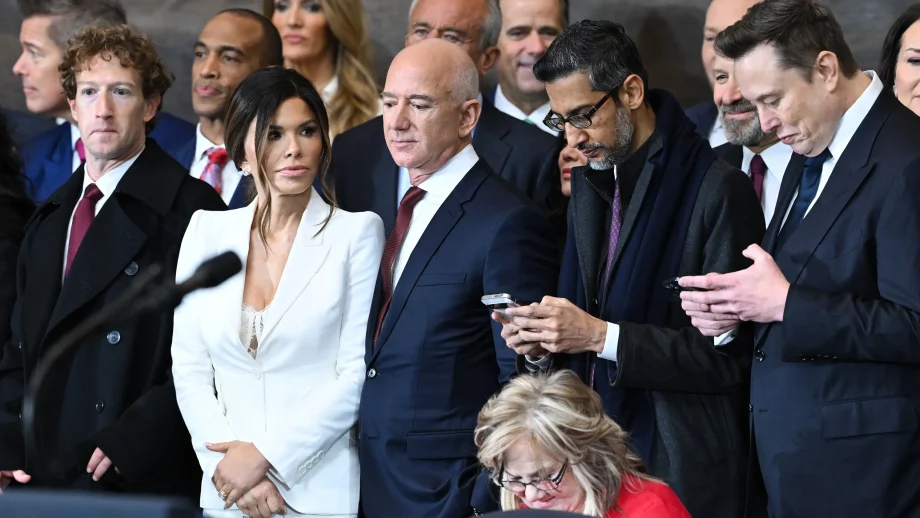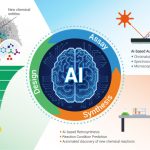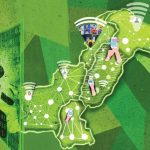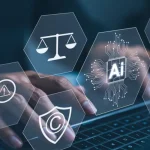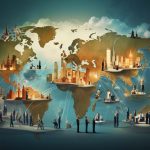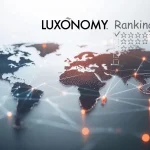The world of 2025 stands at a defining crossroads. The fusion of politics, technology, and celebrity influence has reshaped the way humanity communicates, governs, and even dreams.
- Tech Billionaires as Political Power Brokers
- The Celebrity Influence in Global Movements
- The AI-Driven Media Revolution
- Political Agendas in the Digital Age
- Global Tensions in a Connected World
- The Metaverse and the Future of Social Identity
- The Ethical Dilemma of Technology
- Cultural Impact and the Future of Humanity
- FAQs
- Conclusion
The once separate worlds of entertainment and governance are now deeply intertwined through digital innovation.
Every government policy, celebrity move, or corporate launch ripples across global social platforms within seconds.
Tech companies like Meta, Apple, and OpenAI no longer just build products—they shape ideologies and behaviors. Political leaders are more aware than ever that technology can win elections, control narratives, and define national identity. The line separating power and popularity has dissolved, replaced by algorithms that dictate influence.
Tech Billionaires as Political Power Brokers
The emergence of tech moguls as political influencers marks a seismic shift in world order. Elon Musk, Jeff Bezos, and other billionaires now hold more sway than many elected officials. Their companies dominate industries that directly impact national economies, communications, and even space exploration.
Governments rely on these innovators for infrastructure, digital defense, and public communication systems. This dependence has blurred the boundary between state power and corporate authority. In many nations, the voices of CEOs carry more weight than cabinet ministers. Critics argue that this consolidation of influence is eroding democratic accountability, creating a new kind of unelected elite.
The Celebrity Influence in Global Movements
In 2025, celebrity activism has evolved into a global phenomenon. Figures like Leonardo DiCaprio, Zendaya, and BTS members are leading movements for climate change, mental health, and digital privacy. Unlike traditional politicians, these celebrities communicate directly with their audiences, shaping opinions and mobilizing millions overnight.
Social media has given them unprecedented reach, turning personal opinions into political movements. Hashtags become protests, and live streams turn into digital rallies. This new breed of influencer-driven activism has democratized global discourse—but it also raises concerns about misinformation and emotional manipulation.
The AI-Driven Media Revolution
Artificial intelligence is redefining how news is created and consumed. Newsrooms use AI algorithms to predict trending topics, while virtual anchors deliver real-time updates in multiple languages. Personalization ensures that every user sees a customized version of reality, often reinforcing biases.
This AI-driven transformation brings convenience but also danger. When algorithms decide what truth looks like, objectivity becomes fragile. Media watchdogs warn that while AI can streamline journalism, it also risks erasing the human touch that ensures empathy and ethical judgment in reporting.
Political Agendas in the Digital Age
Elections in 2025 are fought not on debate stages but on social platforms. AI-generated campaign videos, data-driven advertisements, and digital propaganda dominate political spaces. Politicians hire tech teams, not just speechwriters, to shape their digital identity.
Nations are also weaponizing technology to advance political agendas abroad. Cyber warfare, data leaks, and AI misinformation campaigns have replaced traditional espionage. This has transformed diplomacy into a constant digital battle for narrative control.
Global Tensions in a Connected World
Technology has connected the planet more than ever, yet political divisions have deepened. The Russia-Ukraine conflict, tensions in the South China Sea, and Middle Eastern instability have shown that digital alliances can be as volatile as physical ones.
Countries are using social platforms to wage psychological wars—spreading propaganda, influencing public sentiment, and swaying elections overseas. This digital battleground proves that the internet, once hailed as a tool for freedom, has become the most powerful weapon of modern politics.
The Metaverse and the Future of Social Identity
The metaverse is no longer just a futuristic concept—it’s a parallel economy. Virtual cities host concerts, schools, and marketplaces. Brands sell digital fashion, and influencers host AI-generated talk shows. For many, life online is becoming more meaningful than life offline.
Celebrities are pioneering this frontier, creating virtual avatars that interact with fans worldwide. Political parties are hosting digital rallies, reaching millions without logistical barriers. Yet, this virtual migration raises ethical questions about identity, addiction, and authenticity in a hyperconnected era.
The Ethical Dilemma of Technology
While innovation drives progress, it also creates ethical gray areas. Facial recognition systems threaten privacy, while AI-generated art challenges creativity’s authenticity. Data-driven policing and predictive justice raise fears of algorithmic bias.
The question haunting 2025 is not whether technology can do something—but whether it should. The moral responsibility of innovation has never been greater, especially as artificial intelligence begins to replicate human consciousness and decision-making.
Cultural Impact and the Future of Humanity
Culture in 2025 reflects the pulse of the digital age. Music, fashion, and cinema are shaped by algorithms that predict what audiences will love before creators even produce it. The boundary between art and analytics has dissolved, and human creativity now shares the stage with machine intelligence.
Yet, amid automation and virtual reality, humanity still yearns for authenticity. The most successful influencers and artists are those who embrace vulnerability—proving that even in a digital world, the human heart remains irreplaceable.
FAQs
How are politics and technology influencing each other?
Technology shapes public perception, while politics determines the ethical boundaries of innovation. Both are now interdependent forces defining the modern world.
What role do celebrities play in social change today?
Celebrities use digital platforms to promote causes, influence public opinion, and mobilize followers for global campaigns.
How does AI affect global media integrity?
AI improves speed and accuracy in news creation but also risks spreading misinformation if not ethically managed.
Is the metaverse really becoming mainstream?
Yes, millions now engage in virtual spaces for work, entertainment, and education, creating an emerging digital economy.
What are the biggest concerns about modern technology?
Privacy invasion, job automation, misinformation, and ethical misuse of AI remain major global challenges.
Conclusion
The year 2025 is not just another chapter in human progress—it is a revolution of identity, power, and technology. Every innovation redefines who holds influence, from billionaire tech leaders to online celebrities shaping public thought. The merging of these domains has created an era where information and emotion are both commodities and weapons.
As humanity steps into this uncharted digital era, balance becomes essential. True progress will depend not only on technological advancement but also on wisdom, empathy, and accountability. QuickMobileTech.com continues to explore these converging worlds, revealing how technology, politics, and culture will define the very soul of the modern age.

